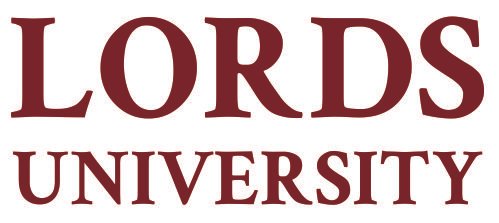Nurturing Inclusion: Explore Diverse Special Education Courses at Lords University
Special education encompasses a variety of services, customised and delivered in diverse ways and settings, to support the learning of children with disabilities. It recognises that each student is unique, and therefore there’s no “one size fits all” approach to special education, hence there is no uniform approach. Special education is designed to cater to the specific needs of students with disabilities, ensuring their individualised growth and development.
Programs under Special Education are degree/diploma courses dealing with preparing teachers to educate specially-abled or physically challenged students. It is an education course that focuses on the unique requirements and characteristics of children with special needs.
Lords University provides a diverse range of courses in special education, including the following:
D.H.L.S. (Diploma in Hearing Language and Speech)
D.Ed Spl Ed (IDD) (Diploma in Special Education - Intellectual and Developmental Disabilities)
B.Ed Spl Ed (LD) (Bachelor of Education in Special Education - Learning Disabilities)
B.Ed Spl Ed (IDD)/B.Ed Spl Ed (MR) (Bachelor of Education in Special Education - Intellectual and Developmental Disabilities/Mental Retardation)
These courses are designed to equip individuals with the necessary knowledge and skills to support and educate students with specific disabilities in a specialized and inclusive educational environment.
The D.H.L.S. program, initiated by RCI, aims to train individuals and equip them with fundamental skills to provide speech-language therapy, conduct programs for early identification of communication disorders, educate the community on prevention measures, perform basic audiological testing, and offer guidance to the hearing impaired at village, block/taluka, and town levels.
These individuals will work under the supervision of trained Speech & Hearing clinicians.
The primary objective of the D.H.L.S. program is to produce Speech and Hearing Technicians capable of undertaking routine clinical tasks such as assessment and therapeutic management of various speech, language, and hearing disorders at the village, block/taluka, and town levels.
The Diploma in Education - Special Education(IDD) is formulated to prepare special teachers for children with disabilities specialising in Intellectual Disability (ID). The special teacher can work in varying settings such as early intervention centers, preschools and elementary schools. These centres or schools may be special or inclusive in nature. The course also would prepare the teachers in such a way so that they can provide home training or in the blended learning form if the need arises.
The D.Ed in Special Education (IDD) program will especially help the student trainees develop knowledge-based competencies about various disabilities and their associated conditions and skill-based competencies for assessing and identifying learners with ID using a multidisciplinary approach.
B.Ed. Special Education (Learning Disability (LD) is specifically designed to equip student teachers with the necessary knowledge and skills to understand and address the educational, physical, and vocational needs of individuals with disabilities and acquire proficiency in conducting systematic assessments to identify the specific needs of individuals with learning disabilities (LD). Teachers after completing the course plan and implement effective educational programs for children with special needs and gain insights into the management of special education programs, focusing on LD.
They have a responsibility to collaborate and coordinate with parents, families, medical professionals, and the community to support the holistic development of children with disabilities, enabling them to contribute meaningfully to society by raising awareness and fostering sensitivity within society towards persons with disabilities.
Bachelor of Education in Special Education IDD (Intellectual and Developmental Disabilities) or the B. Ed. Special Education MR (Mental Retardation) aims at training special educators to work with children with mental retardation in the different settings mentioned above. The program will especially help the student trainees develop competencies like knowledge, skills and values. It is envisaged that such a programme would widen the horizon for the teacher trainee on completion of the course, to teach in special schools, regular inclusive schools at the elementary level, work in early intervention and preschool set up or undertake home-based teaching to support those with high support needs.
The programme will facilitate learners to acquire knowledge & skills about the nature and educational needs of children with disabilities with emphasis on children with intellectual disability. It will develop a conceptual understanding of education for working with children with and without disabilities in various settings.
Master of Education in Special Education IDD (Intellectual and Developmental Disabilities) or the M. Ed. Special Education MR (Mental Retardation): M. Ed. Special education is a full-time one-year course designed to enhance the capabilities of educators for children who need special education. The program aims to produce special educators who will be able to educate students suffering from mental retardation. The program trains them on the special skills required to teach students with learning deficiencies or those who are slow learners.
A candidate who has successfully passed B.Ed.(Special Education) in each disability area with minimum 50% marks OR Equivalent degree recognised by RCI may enrol in the program and learn the practical concept of Special Education and its perspectives, exceptionalities and inter-relatedness.
The program teaches to explain the theoretical framework for the growth and development of the personality of children with special needs along with the various theories in human development and psychology and applies them to teaching–learning situations. The course discusses the role of research in theory and guides in designing, executing, and writing research reports in special education.

